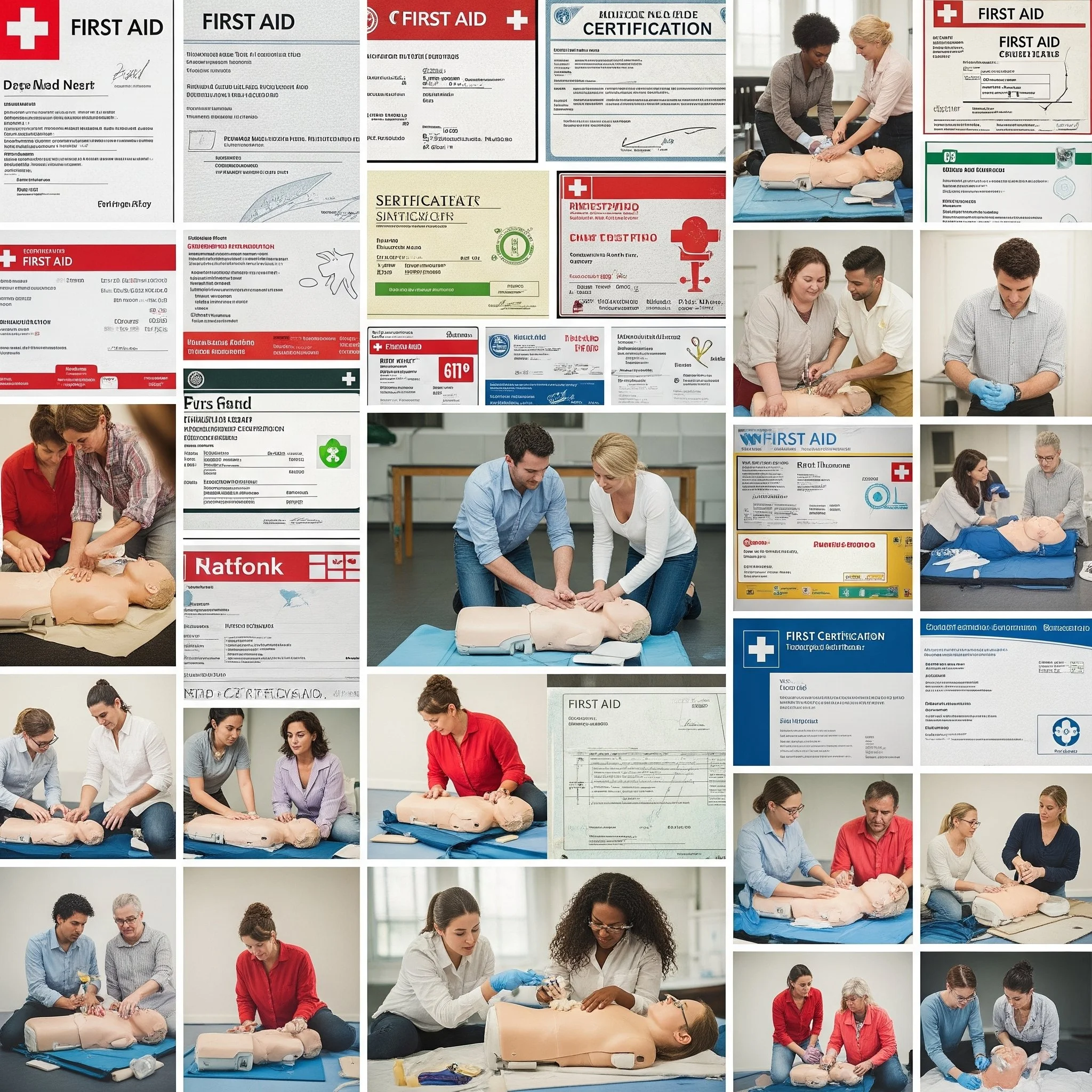Navigating Canadian First Aid Training: Levels and Certifications
In Canada, first aid training is not a one-size-fits-all solution. To ensure individuals are appropriately equipped for diverse emergency scenarios, a tiered system of certification exists, primarily governed by leading organizations like the Canadian Red Cross and St. John Ambulance, and recognized by provincial and territorial regulatory bodies. Understanding these levels is crucial for anyone seeking to empower themselves with life-saving skills, whether for personal preparedness, community involvement, or workplace compliance.
At Ready 4 Everything Training and Supplies, we pride ourselves on offering a comprehensive range of these certified courses, ensuring that every Canadian can find the right level of training to meet their specific needs and responsibilities.
The Foundation: CPR and AED Certifications
Before delving into general first aid levels, it's important to understand the CPR (Cardiopulmonary Resuscitation) and AED (Automated External Defibrillator) certifications, as they are often integrated into or required alongside first aid courses.
CPR Level A (Adult): Focuses on single-rescuer CPR for adults (post-puberty). Includes recognizing cardiac arrest, chest compressions, rescue breaths, and basic AED use for adults.
CPR Level C (Adult, Child, Baby): Expands on Level A to include CPR and AED use for children (1 year to puberty) and babies (under 1 year). This is often the most common level chosen for general public and workplace training.
BLS (Basic Life Support): Formerly known as Healthcare Provider CPR, BLS is designed for healthcare professionals and trained first responders. It covers advanced CPR techniques, use of bag-valve masks, and a more in-depth approach to managing medical emergencies.
These CPR levels are foundational, as cardiac arrest is a critical, time-sensitive emergency where immediate action significantly impacts survival.
General First Aid Training Levels: Building Your Skillset
Canadian first aid training progresses through distinct levels, each building upon the previous, offering more in-depth knowledge and a broader scope of practice:
Emergency First Aid (EFA):
Duration: Typically 8 hours (1 day).
Scope: Focuses on immediate, life-threatening emergencies. Covers "Check, Call, Care" principles, choking (adult, child, baby), severe bleeding, and shock. Often includes CPR Level A or C.
Who it's for: Ideal for individuals who want basic life-saving skills for home or community, or for workplaces with lower-risk environments where basic first aid support is required. It's an excellent starting point for anyone interested in preparedness.
Importance: Provides essential skills to stabilize a person and buy time until professional help arrives.
Standard First Aid (SFA):
Duration: Typically 14-16 hours (2 days).
Scope: Comprehensive training that builds upon EFA. Includes everything in EFA plus medical emergencies (heart attack, stroke, diabetic emergencies, anaphylaxis), bone/muscle/joint injuries, burns, environmental emergencies (heat/cold), poisoning, and wound care. Always includes CPR Level A or C.
Who it's for: The most widely recognized and accepted first aid certification for general public and workplace requirements across Canada. It's recommended for most workplaces, community groups, and individuals seeking a broad range of emergency skills.
Importance: Equips individuals to handle a wider variety of emergencies, both major and minor, with greater confidence and capability.
Advanced First Aid (AFA):
Duration: Typically 40 hours or more (5 days+).
Scope: An in-depth, intensive course for individuals requiring more advanced skills and knowledge, often working in higher-risk or remote environments, or as part of an emergency response team. Includes detailed patient assessment, specialized wound care, multiple casualty management, medical emergency management, and sometimes advanced airway management. Typically includes BLS.
Who it's for: Paramedic and nursing students, industrial first aid attendants, search and rescue personnel, outdoor guides, and others who may be the primary first responder in challenging situations.
Importance: Provides extensive training for complex emergencies, allowing for prolonged care in remote settings or management of multiple casualties.
Recertification: Staying Current and Confident
First aid and CPR certifications typically have an expiry date, usually every 3 years in Canada. Regular recertification is crucial for several reasons:
Knowledge Retention: Skills degrade over time without practice.
Updates to Guidelines: Emergency care protocols evolve based on new research and best practices. Recertification ensures you're learning the most current and effective techniques.
Legal Compliance: For workplace first aiders, maintaining current certification is a regulatory requirement.
Choosing the Right Level: What's Right for You or Your Organization?
Choosing the correct level of training depends on several factors:
Personal Interest: Are you looking for basic skills for family safety or a more comprehensive understanding?
Workplace Requirements: Most workplaces will have specific regulatory requirements based on industry, number of employees, and distance to medical facilities. Our online safety training management solutions can help you assess and manage these needs.
Risk Assessment: What types of hazards are you likely to encounter? A construction site will require different training than an office environment.
Role and Responsibility: Are you a designated first aid attendant, a supervisor, or a general employee?
Ready 4 Everything: Your Path to Certification
At Ready 4 Everything Training and Supplies, we are committed to making first aid training accessible, practical, and meaningful. Our certified instructors bring real-world experience to the classroom, ensuring you not only learn the theory but also gain the hands-on confidence to apply your skills when it counts. We offer all levels of first aid and CPR, catering to individuals, community groups, and businesses across Canada.
Your Action Item: Ready to elevate your skills or ensure your team meets Canadian safety standards? Sign up for first aid courses for your organization today and find the certification level that’s perfectly suited to your needs. Invest in training, invest in preparedness, and be confident you’re Ready 4 Everything.

